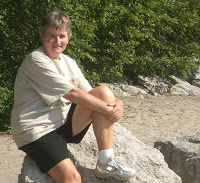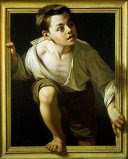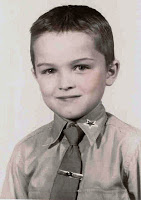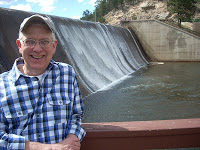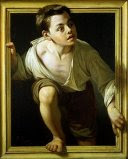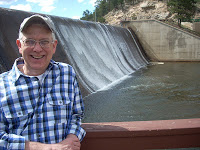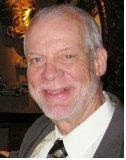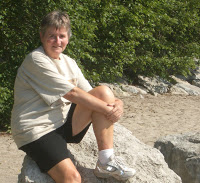understood sports to be for fun, fitness, and friendly competition. Now, in my
curmudgeonly old age, I know sports to be about money, winning at all costs,
and very unfriendly competition.
have gone completely out of whack. Have you been to a school ball game lately?
Even pee-wee baseball is all about winning. At that age, should it not be about having fun, getting some healthy fresh air exercise, and learning the basics of
the game? Oh no! Fathers scream abuse not only at other children but at their
own. God forbid that poor little Joey should strike out or fail to catch a
ball. He’ll pay for that when he gets home. The pressure on so many
children these days is immense. Everything has become so serious.
of course, have paved the way. Back in the 1970s I had friends with Broncos
season tickets. The husband frequently had better things to do, and my husband
was rarely interested, so off to the game the girls went! It was fun. Having
had the same seats for several seasons, my friend knew all the people around
us. We all bought each other beers and chatted and cheered. After my divorce I
lost touch with those friends, and I did not go to a live game for a long time.
Then one day another friend had a spare ticket and I went to Mile High Stadium
again, for the first time in probably twenty years. My, how it had changed.
Everyone seemed to be angry rather than enjoying themselves. There was a
constant stream of verbal abuse hurled at the players on both teams, and of
course the officiating crew. I was so sick of the constant “F” word. By the time
I left I felt as if it had been burned into my ears and my brain and my psyche.
(Or, as Betsy commented when I read this to her, I felt completely fucked! And
not in a good way!) I have not been offered a ticket to a football game since
then; if I were, I seriously doubt that I would accept it.
still follow the NFL pretty devotedly on TV. I can’t explain why I like it.
Many lesbians are ardent football fans, which seems strange as the game
consists of what most of us abhor; sanctioned violence, perpetrated by huge
sweaty men. I have to close my mind to two things, though. The violence to
women committed by an unfortunately large number of players, and the huge
salaries now offered to these people, would put me off the entire sport if I
thought about them too much, so mostly I don’t.
After all, I don’t refuse to see a movie because of the shenanigans of
those acting in it.
of humanity which seems to have taken over. If a player has an injury, the
opposing team members will do their best to attack that part of his body. Has
it really gotten to the stage where the intent is to do permanent bodily
injury?
the rest of the season,” laughs the commentator happily.
plays so angry,” rejoins his co-commentator in admiration.
just looking to rip someone’s head off every play!”
It’s supposed to be a game. Was it always so merciless? Maybe so and I didn’t
get it. After all I have never played football.
Football is a violent game. If you don’t like it don’t watch it.
football.
tennis, though far from the Pro level. But, at that Pro level, how it has
changed. Once considered a sport of Gentlemen and Ladies, it is now as
cut-throat as any other professional sport.
injured that right ankle, Varenova will keep her going to that side, see if she
can’t break her down,” a happy commentator reports.
replies another, “It’s time to take advantage of that injury and finish
her off. Go in for the kill right now.”
violence seems to have penetrated even the sport of Ladies and Gentlemen. It is so pervasive, and I cannot believe it
has a positive effect on our society.
seriousness with which we take sports, players and spectators alike, of course
has come with the advent of huge financial rewards. These in turn came with the
universal obsession with sports by so many people. In the days before huge
lights dominated the playing fields, games were played in the daylight hours,
thus eliminating most of the potential fans who were, of necessity, at work.
Even if it were broadcast live on the radio, or later the old black-and-white
TV, few were available to enjoy it. Most were played at weekends, to attract
more followers, but time off work was limited and people had many things to
cram into a weekend.
brightly-lit stadium where people could gather after work and watch, or watch
at home on the TV in the evening, relaxing from that hard day at the factory. The fan base kept growing. Sports were becoming
big business. Compensation for players and coaches, support staff and owners,
kept rising.
media, complete with ever-improved recording devises and exponentially
increasing choices of what to watch when. No need to miss anything. Ever.
Grandma turns up unexpectedly right at the kickoff or the first serve; no
matter. Press the little red button and welcome Granny with open arms. In
addition, the fan base for all sports is expanding horizontally, across the
globe. Want to watch the Australian Open Tennis here in the U.S.? Can’t even
figure out what day it is in Australia, never mind what time? No worries. Look
it up on the TV Guide, on the TV of course, not that little book we once bought
at the grocery store, hit that little red button and go to bed. Watch it
tomorrow. Sometime. Whenever.
professional sport’s universal, world wide appeal, I suppose the money involved
is only to be expected. I’m not sure what Neil Armstrong earned by being the
first human ever to walk on the moon, but I doubt it was anything like what
many many sports heroes earn. But why not? The moon walk was reportedly watched
by 530 million people. The 2011 Cricket World Cup between India and Pakistan
was supposedly watched by about one billion.
with less hype, less money, less drama, involved in sports. But what I really
really miss is the gentler language, before it all became so infused with
violence. But it seems to be what most people want. After all, you get what you
pay for.
the Author
was born and raised in England. After graduation from college there, I moved to
the U.S. and, having discovered Colorado, never left. I have lived in the
Denver-Boulder area since 1965, working for 30 years at IBM. I married, raised
four stepchildren, then got divorced after finally, in my forties, accepting
myself as a lesbian. I have now been with my wonderful partner Betsy for 25
years.
